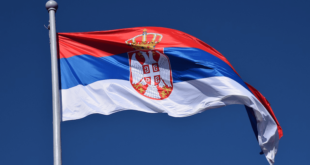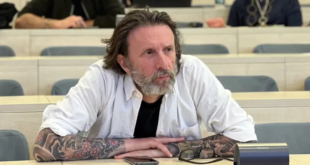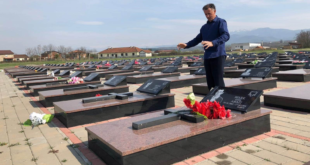RACAK, Serbia – The massacre of 44 Kosovo Albanians by Serb security forces in this village nine years ago is a reminder of why Kosovo deserves independence from Serbia, says the U.S. diplomat who reported it to the world.
“I think the world has forgotten the sequence of events,” William Walker said, on a return to the hillside where he witnessed the grim results of a Serbian paramilitary police operation to flush out Kosovo Albanian guerrillas.
“Racak was certainly not an isolated incident. It was happening all over Kosovo,” said Walker, who led a Verification Mission to Kosovo to ensure the late Slobodan Milosevic kept his pledge to halt the use of excessive force and stop war crimes.
“What was different here was we managed to get here in the immediate aftermath, before the Yugoslav security forces were able to get their story out and make sure everyone believed their story, which was ridiculous,” he said on Saturday.
Kosovo is now just days from declaring independence in the teeth of bitter opposition from Serbia, which is offering the province wide autonomy but insists it remain part of Serbian territory under the sovereignty of Belgrade.
An estimated 8,000 to 12,000 civilians were killed in the 1998-99 conflict, the great majority Albanians. Over 800,000 Albanians fled or were driven from the country at one point.
Walker says historical revisionists ignore these facts in their case against Kosovo’s demand for self-determination.
Kosovo has been supervised by the United Nations since NATO bombed Serbia for 11 weeks in 1999, compelling Milosevic to withdraw his forces. The West sees no hope of persuading the two million Kosovars, 90 percent Albanian, to return to Serbia.
OLD MEN, YOUNG BOYS KILLED
On Jan 15, 1999, a Serb commander reported 15 Albanian guerrillas killed in action at Racak, with no Serb casualties. But international monitors found a very different scene.
Standing by 44 snow-covered graves, Walker recounted how the next day he walked up a shallow ravine littered with the corpses of old men and young boys, all bullet-riddled, some mutilated.
“I have yet to meet anyone who was up here on the hill with me that day who did not come to the same conclusion I did — that these people had been taken off unarmed, under arms, and had been executed,” he said.
“They had on the clothes of people who work the fields, the big rubber boots and the peasant clothes.”
When Walker denounced it as a massacre, Milosevic’s propaganda machine countered with its own versions of the event, getting “more ridiculous” as they multiplied, he said.
“They said I was a CIA agent and that we came up here in the middle of the night and changed everybody’s clothes.”
Few outside Serbia were swayed. Racak was a turning point. Under threat from NATO, Serbia had to join Kosovo Albanians for peace talks in Rambouillet, France, the following month.
Walker believes “we would not be standing here talking about independence” if Milosevic had not rejected the radical force reduction then demanded by the West.
“This would still be part of a Yugoslavia of some sort … if the Milosevic government had just shown some recognition of the needs of the people of Kosovo … I think we’d be talking about a very different future for this place.”
But Walker and the 1,400-strong Verification Mission were forced to pull out and NATO began bombing on March 24.
Serbia had still not faced up to what happened and had shown no sign of changing its view that the Albanians were a people to be “abused and harassed”, he said.
“After what I saw here in my 6 or 7 months in Kosovo, I cannot imagine how the people of Kosovo … can possibly ever accept any degree of control from Belgrade.”
 Eurasia Press & News
Eurasia Press & News



